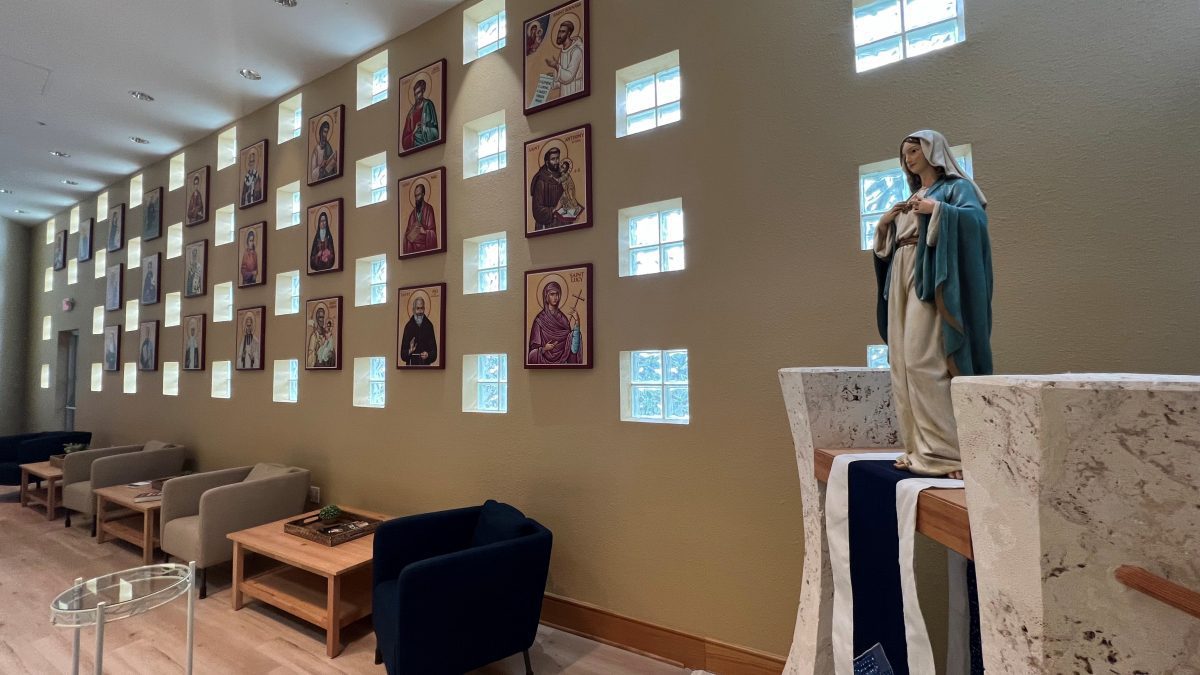ORLANDO | Burying the dead, comforting the afflicted, consoling the forlorn, these are corporal and spiritual works of mercy that all Catholics are called to follow. The pandemic turned traditional bereavement ministry on its head with social distancing, limitations on the number of funeral guests, and an increase in livestreamed services.
Now that we’re gathered back together, the diocesan Laity, Family, and Life office is ready to breathe new life and training into bereavement ministers.
“It was very important to reconnect with this group,” said Tomás Evans, director of adult ministry. “As we work with parishes throughout the Diocese of Orlando, the great need for this training is apparent.”
The first training held at St. James Cathedral in Orlando attracted 200 bereavement ministers. The demand was so great, another bereavement training session will be offered Oct. 15, 2022, at St. Vincent de Paul Parish in Wildwood.
Evans’ team presented the technical aspects of bereavement ministry — what is liturgically proper, but also made it clear that all Catholics are all called to make disciples. “Many people were very interested in that aspect,” he noted. Expounding on the theology of discipleship, presenters in English and Spanish explained what it means to be a Catholic minister and how our baptismal promises support a ministry of accompaniment.
Nancy Smith, bereavement coordinator of Divine Mercy Parish in Merritt Island, participated in the training with two fellow parishioners. As a new coordinator, Smith desired to get others involved and be fully prepared.
“I am hoping to make my ministry stronger through the training I received and share it with my committee,” she said.
Bruce Croteau, director of liturgy for the diocese, started with the basics, and underscored the significance and purpose of the rituals found in the Order of Christian Funerals.
“First and foremost, the rituals are meant to celebrate the Paschal Mystery; Christ’s victory over sin and death and His resurrection and ascension into heaven,” he said. “At the heart of the Paschal Mystery is the hope of eternal life. Where Christ has gone, we hope to follow. It is important as ministers in the Church that we convey the message of hope.”
He noted, “What the Church teaches and believes is often quite different from what a given culture might hold fast to in terms of death and dying. What we pray is important. The Collect (Opening Prayer) of the Funeral Mass expresses quite succinctly what we believe: ‘O God…our faith professes that your Son died and rose again; mercifully grant, that through this mystery your servant, who has fallen asleep in Christ, may rejoice to rise again through Him…”
Noting how culturally, we tend to be somewhat of a “throw away” culture, he said there can be a tendency to rush through the “taking leave” or “parting.”
“The Rites of the Order of Christian Funerals give those who are grieving the space and time to move on to the new experience of their loved one who has passed,” he explained. “As the text of the Vigil for the Deceased states ‘…we believe that all the ties of friendship and affection which knit us as one throughout our lives do not unravel with death.’”
Other presenters spoke about funeral planning and other specifics pertaining to the ministry.
Stressing the two critical components of bereavement – those at the parish who first respond to the loss of a loved one, help plan the liturgy, vigil, and funeral rites; and those who console and accompany. Evans explained this training came about as part of a broader effort, “trying to implement an idea of discipleship.” Discipleship exists in three stages: encountering Jesus; following Jesus; and forming disciples. “Everything we do is informed by this,” he said.
To this end, the bereavement training will follow up with a Grief Ministry training in January.
Father Nicholas O’Brien, pastor of St. Matthew Parish in Winter Haven, brought a busload of members to the first session. His parish has a columbarium on parish grounds. He encourages parishioners to, not only pray for those who have been entrusted into the care of the columbarium, but also “minister to and console those who are mourning the loss of their loved ones.”
Keenly understanding the importance of preparing ministry volunteers to welcome and minister to family and friends of those attending funerals, he noted, “We know this is an important tool of evangelization as many who come to our parish for funerals are not Catholic or have fallen away from their Catholic faith.”
Evans agreed with Father O’Brien. This recognition prompted the diocese to incorporate grief ministry training, which begins once the burial occurs, accompanying those left behind as they process their pain. “It is important to understand, although this bereavement process entails suffering, sadness – it is also a valuable opportunity to evangelize. It is a chance to bring families that have been away from their faith, back to the Church,” he said.
Evans is aware there are other programs out there, such as GriefShare®, that parishes are using for lack of a Catholic program. Because these programs are not Catholic, they lack key Catholic elements like the Communion of Saints and Prayers for the Dead. He hopes offering a uniquely Catholic program will assist parishes in carrying out their mission of bringing others to Christ through discipleship.
To learn more or sign up for the January Grief Ministry Training, call 407-246-4880.
By Glenda Meekins of the Florida Catholic staff, October 03, 2022

